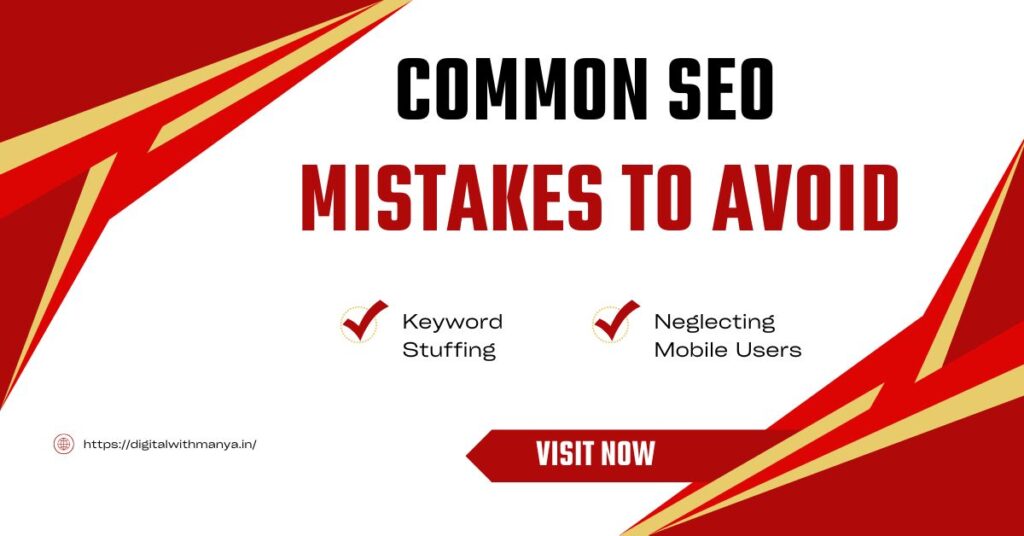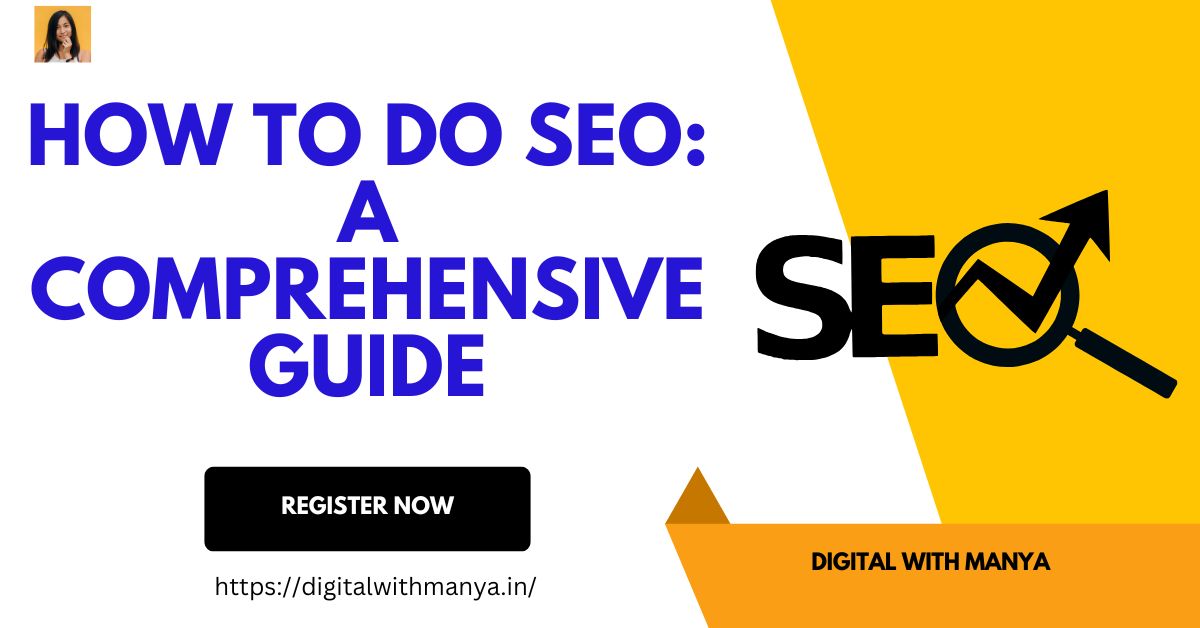Introduction to SEO
What Is SEO?
Search Engine Optimization (SEO) is the art and science of improving your website’s visibility on search engine results pages (SERPs). When people search for something online, SEO ensures your website is more likely to appear in their results, driving organic traffic to your site.
Why Is SEO Important for Websites?
Imagine having a fantastic store but placing it in the middle of a desert. That’s your website without SEO. SEO acts as a signboard, pointing customers toward your website. It helps increase visibility, attract relevant traffic, and boost credibility.
Understanding the Basics of SEO
On-Page SEO vs. Off-Page SEO
- On-Page SEO: Focuses on optimizing elements within your website, such as content and meta tags.
- Off-Page SEO: Involves building authority through backlinks and external references.
Technical SEO Basics
This includes ensuring your site’s infrastructure is optimized for crawling and indexing by search engines. Think of it as creating a strong foundation for your SEO house.
Keyword Research
What Are Keywords?
Keywords are the terms users type into search engines to find what they need. Choosing the right keywords bridges the gap between your content and your audience.
Tools for Effective Keyword Research
Some popular tools include Google Keyword Planner, SEMrush, and Ahrefs. These tools help you identify high-volume, low-competition keywords.
Long-Tail Keywords vs. Short-Tail Keywords
- Short-tail keywords: Broad and generic, e.g., “shoes.”
- Long-tail keywords: Specific and targeted, e.g., “best running shoes for women.”
On-Page SEO Strategies
Optimizing Meta Titles and Descriptions
Your meta title and description are the first things users see on the SERPs. Make them engaging and include your primary keywords.
Content Optimization and Best Practices
High-quality, engaging, and relevant content is the backbone of SEO. Focus on:
- Headings and Subheadings: These improve readability and help search engines understand your content.
- Image Optimization: Use descriptive file names and alt text for images to improve accessibility and rankings.
Off-Page SEO Techniques
Building High-Quality Backlinks
Backlinks from authoritative sites act as votes of confidence for your website. Focus on earning links from relevant, high-quality sites.
Leveraging Social Media for SEO
While social media doesn’t directly impact SEO, it boosts your content’s visibility and engagement, indirectly improving rankings.
Technical SEO Essentials
Site Speed Optimization
Nobody likes a slow-loading website. Use tools like Google PageSpeed Insights to ensure your site loads quickly.
Mobile Friendliness
With mobile-first indexing, having a responsive website design is crucial. If your site isn’t mobile-friendly, you’re missing out on a significant chunk of traffic.
Local SEO Strategies
Optimizing for Google My Business
Claiming and optimizing your Google My Business profile helps your business appear in local search results.
Importance of Local Keywords
Use keywords that include your city or area, e.g., “SEO services in New York.”
Analytics and Monitoring
Tracking SEO Performance with Tools
Platforms like Google Analytics and Google Search Console provide insights into how your site is performing.
Importance of Continuous Optimization
SEO isn’t a one-time task. Regularly update your strategies to align with the latest trends and algorithms.
Common SEO Mistakes to Avoid
Keyword Stuffing
Overusing keywords can make your content unnatural and lead to penalties from search engines.
Neglecting Mobile Users
Given the dominance of mobile searches, ignoring mobile optimization is a critical mistake.
Advanced SEO Techniques
Voice Search Optimization
With the rise of smart assistants, optimizing for voice search is becoming essential. Focus on conversational, question-based keywords.
Understanding E-A-T (Expertise, Authority, Trustworthiness)
Search engines prioritize content from credible sources. Demonstrate expertise, build authority, and foster trust.
The Future of SEO
AI and Its Role in Search
AI tools like ChatGPT are transforming how we approach SEO, offering insights and automation.
Trends to Watch in SEO
From video SEO to interactive content, staying ahead of trends ensures your strategies remain effective.
Conclusion
SEO is the key to unlocking your website’s full potential. By mastering keyword research, on-page and off-page strategies, and technical optimizations, you can ensure your site ranks high and draws quality traffic. Keep evolving your techniques to stay ahead in this dynamic field.
FAQs
Introduction to SEO
What Is SEO?
Search Engine Optimization (SEO) is the art and science of improving your website’s visibility on search engine results pages (SERPs). When people search for something online, SEO ensures your website is more likely to appear in their results, driving organic traffic to your site.
Why Is SEO Important for Websites?
Imagine having a fantastic store but placing it in the middle of a desert. That’s your website without SEO. SEO acts as a signboard, pointing customers toward your website. It helps increase visibility, attract relevant traffic, and boost credibility.
Understanding the Basics of SEO
On-Page SEO vs. Off-Page SEO
- On-Page SEO: Focuses on optimizing elements within your website, such as content and meta tags.
- Off-Page SEO: Involves building authority through backlinks and external references.
Technical SEO Basics
This includes ensuring your site’s infrastructure is optimized for crawling and indexing by search engines. Think of it as creating a strong foundation for your SEO house.
Keyword Research
What Are Keywords?
Keywords are the terms users type into search engines to find what they need. Choosing the right keywords bridges the gap between your content and your audience.
Tools for Effective Keyword Research
Some popular tools include Google Keyword Planner, SEMrush, and Ahrefs. These tools help you identify high-volume, low-competition keywords.
Long-Tail Keywords vs. Short-Tail Keywords
- Short-tail keywords: Broad and generic, e.g., “shoes.”
- Long-tail keywords: Specific and targeted, e.g., “best running shoes for women.”
On-Page SEO Strategies
Optimizing Meta Titles and Descriptions
Your meta title and description are the first things users see on the SERPs. Make them engaging and include your primary keywords.
Content Optimization and Best Practices
High-quality, engaging, and relevant content is the backbone of SEO. Focus on:
- Headings and Subheadings: These improve readability and help search engines understand your content.
- Image Optimization: Use descriptive file names and alt text for images to improve accessibility and rankings.
Off-Page SEO Techniques
Building High-Quality Backlinks
Backlinks from authoritative sites act as votes of confidence for your website. Focus on earning links from relevant, high-quality sites.
Leveraging Social Media for SEO
While social media doesn’t directly impact SEO, it boosts your content’s visibility and engagement, indirectly improving rankings.
Technical SEO Essentials
Site Speed Optimization
Nobody likes a slow-loading website. Use tools like Google PageSpeed Insights to ensure your site loads quickly.
Mobile Friendliness
With mobile-first indexing, having a responsive website design is crucial. If your site isn’t mobile-friendly, you’re missing out on a significant chunk of traffic.
Local SEO Strategies
Optimizing for Google My Business
Claiming and optimizing your Google My Business profile helps your business appear in local search results.
Importance of Local Keywords
Use keywords that include your city or area, e.g., “SEO services in New York.”
Analytics and Monitoring
Tracking SEO Performance with Tools
Platforms like Google Analytics and Google Search Console provide insights into how your site is performing.
Importance of Continuous Optimization
SEO isn’t a one-time task. Regularly update your strategies to align with the latest trends and algorithms.
Common SEO Mistakes to Avoid

Keyword Stuffing
Overusing keywords can make your content unnatural and lead to penalties from search engines.
Neglecting Mobile Users
Given the dominance of mobile searches, ignoring mobile optimization is a critical mistake.
Advanced SEO Techniques
Voice Search Optimization
With the rise of smart assistants, optimizing for voice search is becoming essential. Focus on conversational, question-based keywords.
Understanding E-A-T (Expertise, Authority, Trustworthiness)
Search engines prioritize content from credible sources. Demonstrate expertise, build authority, and foster trust.
The Future of SEO
AI and Its Role in Search
AI tools like ChatGPT are transforming how we approach SEO, offering insights and automation.
Trends to Watch in SEO
From video SEO to interactive content, staying ahead of trends ensures your strategies remain effective.
Conclusion
SEO is the key to unlocking your website’s full potential. By mastering keyword research, on-page and off-page strategies, and technical optimizations, you can ensure your site ranks high and draws quality traffic. Keep evolving your techniques to stay ahead in this dynamic field.
FAQs
- What is the ideal keyword density for SEO?
Aim for 1-2% keyword density, ensuring your content remains natural and engaging. - How long does it take to see SEO results?
It can take 3-6 months to notice significant improvements, depending on your strategies and competition. - Can I do SEO on my own without hiring an expert?
Absolutely! With research and the right tools, anyone can learn and implement SEO. - What’s the difference between SEO and SEM?
SEO focuses on organic traffic, while SEM includes paid search campaigns alongside SEO. - Does social media activity directly impact SEO?
While it doesn’t directly affect rankings, it boosts your content’s visibility and engagement, aiding SEO efforts.
You May Also Like : Digital Marketing Services in Firozabad, Best Digital Marketing Services in Firozabad
Follow Us On : Facebook


